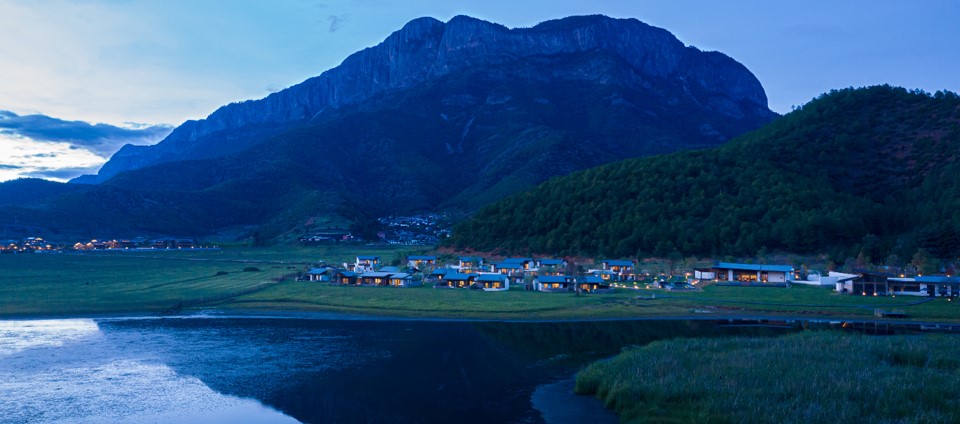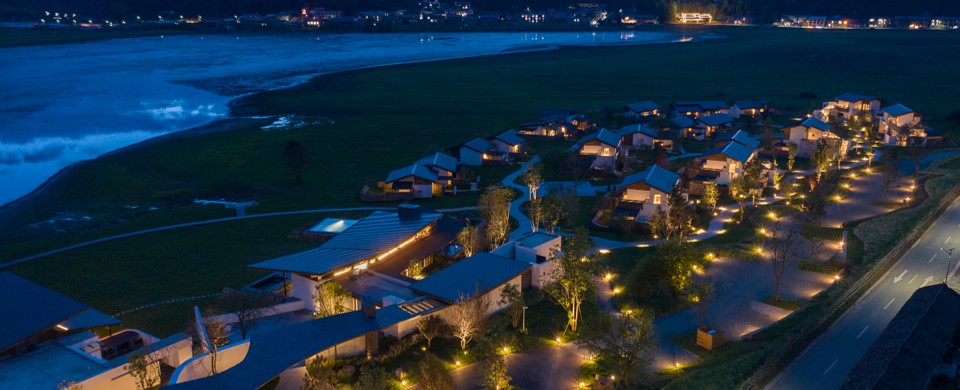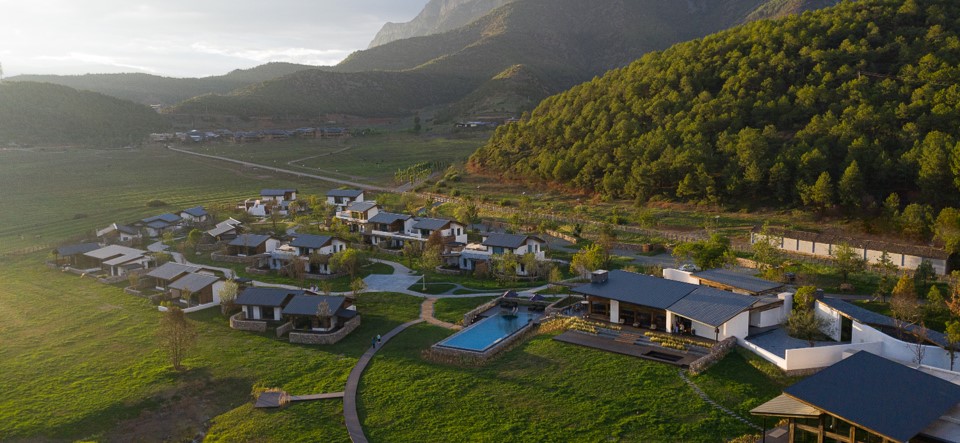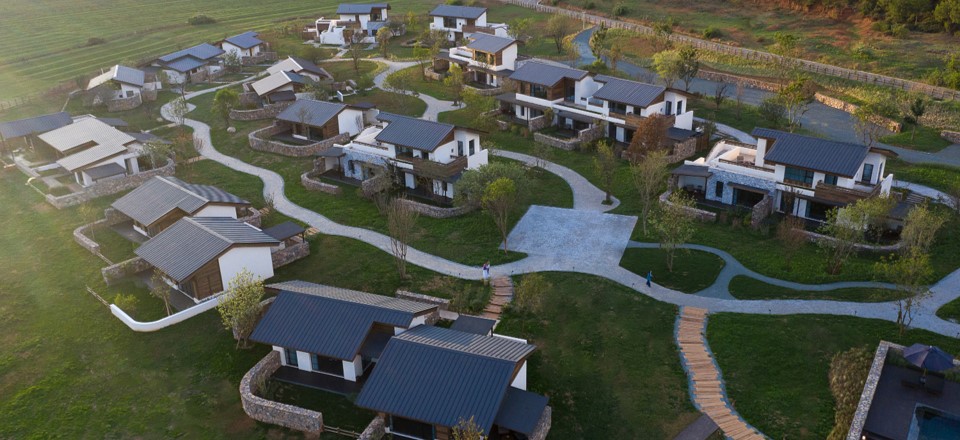Lugu Lake & Mosuo Tribe

Tucked away in the stunning mountains of Yunnan province, China, Lugu Lake presents travelers with breathtaking landscapes and a rich cultural heritage. Known as "the pearl of the plateau," it is renowned for its picturesque scenery and the captivating culture of the matrilineal Mosuo tribe that inhabits its shores. Lugu Lake is ideal for those in search of both tranquility and adventure. We will guide you through the top activities to enjoy at Lugu Lake while delving into the traditions, culture, and distinctive characteristics of the Mosuo people.
Where is Lugu Lake Located?
Lugu Lake sits at an impressive 2,685 meters (8,800 feet) above sea level, straddling the provinces of Yunnan and Sichuan. Located about 200 kilometers north of Lijiang, this enchanting destination is accessible yet feels pleasantly secluded.
Surrounded by lush hills and snow-capped mountains, Lugu Lake covers around 48 square kilometers (18.5 square miles) and is famous for its crystal-clear blue waters. Visitors often remark that the view is like stepping into a painting.
The Scenery and Tourist Attractions around Lugu Lake

Upon arrival, the first thing to capture your attention will be the lake's enchanting blue waters, framed by rolling hills and majestic mountains. This natural beauty swiftly transports visitors to a dreamlike realm.
Lugu Lake is encircled by verdant mountains, with its shores winding gracefully. The lake features 17 beaches and 14 bays. Scattered across the lake are 5 islands, 3 peninsulas, and 1 seawall island.
Among these, Heiwawu Island, Liwubi Island, and Lige Island stand out as the most worthwhile scenic spots, collectively known as the "Lugu Three Islands." From June to August, water poplars bloom in the lake, their flowers as white as ice and snow, dotted like stars, swaying in the breeze. The scene is enchanting, akin to a fairyland on earth.
Numerous villages line the lake, with the more developed ones offering food and accommodation primarily being Daluoshui Village and Lige Village. Daluoshui Village, situated on the southwest shore, is the earliest developed village along Lugu Lake.
Lige Island and Lige Village are located on the northwest shore and have recently become popular tourist hubs. On the north shore, you'll find Nice Village, Xiaoluoshui, and Dazui Village, which are quieter due to fewer tourists. Traveling further east leads you into Sichuan Province. Caohai and the former residence of the princess on the southeast shore are also worth a visit.
Don't miss the chance to savor local delicacies, particularly the hearty potato and sheep dishes that are staples of Mosuo cuisine. Many travelers praise the rich flavors that entice them to return for more.
Why is Lugu Lake Worth Visiting?
Lugu Lake stands out as a unique blend of natural beauty and cultural intrigue. The serene environment is perfect for escaping the busyness of city life.
The true highlight, however, is the Mosuo tribe, often called the "last matriarchal society." Their customs, such as "walking marriages" and matrilineal family structures, offer fascinating insights into a way of life that many find completely different from their own.
When is the Best Time to Travel to Lugu Lake?
Thanks to its elevation, Lugu Lake experiences a mild climate. The best time to visit is between May and October, when the weather is pleasant, and local flora is in full bloom.
During this season, you can enjoy clear skies with temperatures averaging 20°C (68°F) during the day—perfect for hiking or boating. In autumn, the vibrant colors of the changing leaves create a stunning backdrop for your adventures.
The Mosuo Ethnic Minority
History
The Mosuo tribe is often dubbed the "last matriarchal society," with history stretching back thousands of years, is an intriguing and vibrant culture. This unique society is characterized by its distinct social structure, where women hold primary authority in both familial and economic matters. Comprising around 40,000 people, they primarily reside in the Lugu Lake region, preserving their unique cultural practices and resisting external influences.
Traditions and Culture
The Mosuo people have preserved their matrilineal traditions for centuries. In the Mosuo culture, lineage is traced through the female line, and property is inherited by daughters rather than sons. This matrilineal system empowers women, granting them significant roles in decision-making processes within the family and community. Women are seen as the custodians of family wealth and heritage, which is passed down through generations of daughters. This practice not only fosters a sense of continuity within families but also reinforces the status of women in society.
The Mosuo are known for customs that challenge conventional notions of relationships. Their practice of "walking marriages," a term that describes their unique approach to romantic relationships. In this system, women choose their partners freely, and men are expected to visit the women’s homes at night, returning to their own families in the morning.
The children born from these unions are raised in their mother's households, and fathers have limited parental responsibilities. This arrangement allows women to maintain independence and autonomy while fostering a cooperative community environment where extended family members often assist in child-rearing. This matrilineal system gives women control over property and family lineage.
The concept of walking marriages is both fascinating and empowering. Women choose their partners without pressure or obligation. If relationships do not work out, parting ways is uncomplicated. This flexibility fosters a nurturing environment for children, allowing them to grow up surrounded by strong maternal figures and extended family.
The Mosuo people also have a rich cultural heritage that includes vibrant festivals, traditional music, and dance. One of the most celebrated events is the annual Flower Festival, where the Mosuo women dress in colorful attire and engage in various festivities, showcasing their cultural identity and communal bonds. The music of the Mosuo, often featuring traditional instruments and harmonious singing, reflects their connection to nature and the spiritual world, further enriching their cultural landscape.
Additionally, the Mosuo are deeply spiritual. They worship the goddess "Ashen," believed to govern the lake and surrounding nature. Festivals play a crucial role in Mosuo culture, with traditional songs and dances showcasing their rich artistic heritage. Participating in these events can be a highlight of your visit.
The Mosuo stands as a remarkable example of a matriarchal society that challenges conventional notions of gender roles and family structures. Their unique practices, particularly the walking marriage system, highlight the empowerment of women and the importance of kinship ties in their culture. As the world continues to change, the Mosuo people strive to maintain their rich traditions while navigating the complexities of modernity.
A 3-Day Itinerary to Visit Lugu Lake
Day 1: Arrival and Exploration of Mosuo Culture
Morning: Depart Lijiang by private car to Lugu Lake which will take about 4 hours. Admire the scenery of snow mountains and canyons along the way and stop by the viewing platform of Lugu Lake, where the turquoise-like surface of the lake mirrors the sacred Gemu Goddess mountain.
Afternoon: Visit Mosuo Village to meet locals and learn about their customs. Learn about the unique culture of the matrilineal society.

Evening: Enjoy authentic Mosou dinner in a lakeside wooden house with sour fish hotpot, roasted chicken and cremated potatoes in a fire pit, sipping ghee tea while listening to the romantic stories about the culture of walking marriages.
Day 2: Scenic Exploration
Morning: Watch sunrise on the fog-shrouded shores of the lake and capture a photographic dream moment of gold dyed on the lake's surface. Start with a lakeshore hike. Choose trails with spectacular views of the lake and mountains. Take a horseback ride through the grass-sea wetlands or hike the west bank passing pristine Nisei Village and the "love tree". Enjoy a 360 degree view of the lake from the observation deck.

Afternoon: Take a boat ride in the heart of the lake in a Mosuo canoe. Visit the Tibetan Buddhist temple on Lizhibi island and learn about the faith of the Mosuo. Try fishing in the crystal clear lake bay or horseback riding along the shores of the lake.

Evening: Return to the village for dinner of smoked yak meat, wild honey, broccoli soup and Surima wine. Join the cracking bonfire and dance with the Mosuo youth experiencing the warmth and hospitality of the Mosuo people. and the ancient traditions amid the sound of flutes.

Day 3: Cultural Deep Dive and Relaxation
Morning: Visit the Moso Culture Museum for in-depth insights into Mosuo history and customs. Visit the Yeon Cha Nam Musuem to admire Mosuo's hand painted prayer flags and wood carvings and shop for natural grass and wood dye scarves made by the village women.
Afternoon: Explore the stunning landscapes at your leisure or try crafting traditional Mosuo handicrafts in a traditional textile workshop and weave colored Mosuo ribbons under the guidance of Mosuo Amah.
Evening: Wind down with a sunset view over Lugu Lake, cherishing your last moments in this magical place before departing for Lijiang.
Where to Stay
Lanyond Hotel is located in the bamboo land area northwest of the Lugu Lake Scenic Area in Yongning Town, Ninglang Yi Autonomous County, Lijiang City, Yunnan Province. It is the core area of the "Mosuo Town". The hotel is backed by the Goddess Gemu Mountain, facing the bamboo land sea of Lugu Lake, and across the pine forest from Lugu Lake. Here, the tranquility of body and mind has never been so close at hand. You can fully appreciate the natural and cultural essence of Lugu Lake and feel the relaxed and comfortable poetic holiday space of Lugu Lake.
The building pattern is based on the Mosuo settlement, and the single-family courtyard villa presents a free, pastoral and poetic accommodation space. The first floor is equipped with an independent courtyard and outdoor tea drinking space, and the second floor is equipped with an independent terrace. When you step out of the room, you will see the grass, blue sky, sunshine and wind of the plateau.
Final Thoughts
Lugu Lake is not just about stunning scenery; it is a place infused with cultural depth and enriching experiences. The Mosuo tribe, with their extraordinary practices, turns your visit into a journey of discovery.
Whether hiking through breathtaking terrain, cruising the tranquil waters, or engaging with the Mosuo people, Lugu Lake promises a vivid travel experience that stays with you long after you've returned home.
So, pack your bags and prepare for an unforgettable adventure in one of China's most captivating destinations with Aether Tours! Don’t miss out on the magic of Lugu Lake.






















